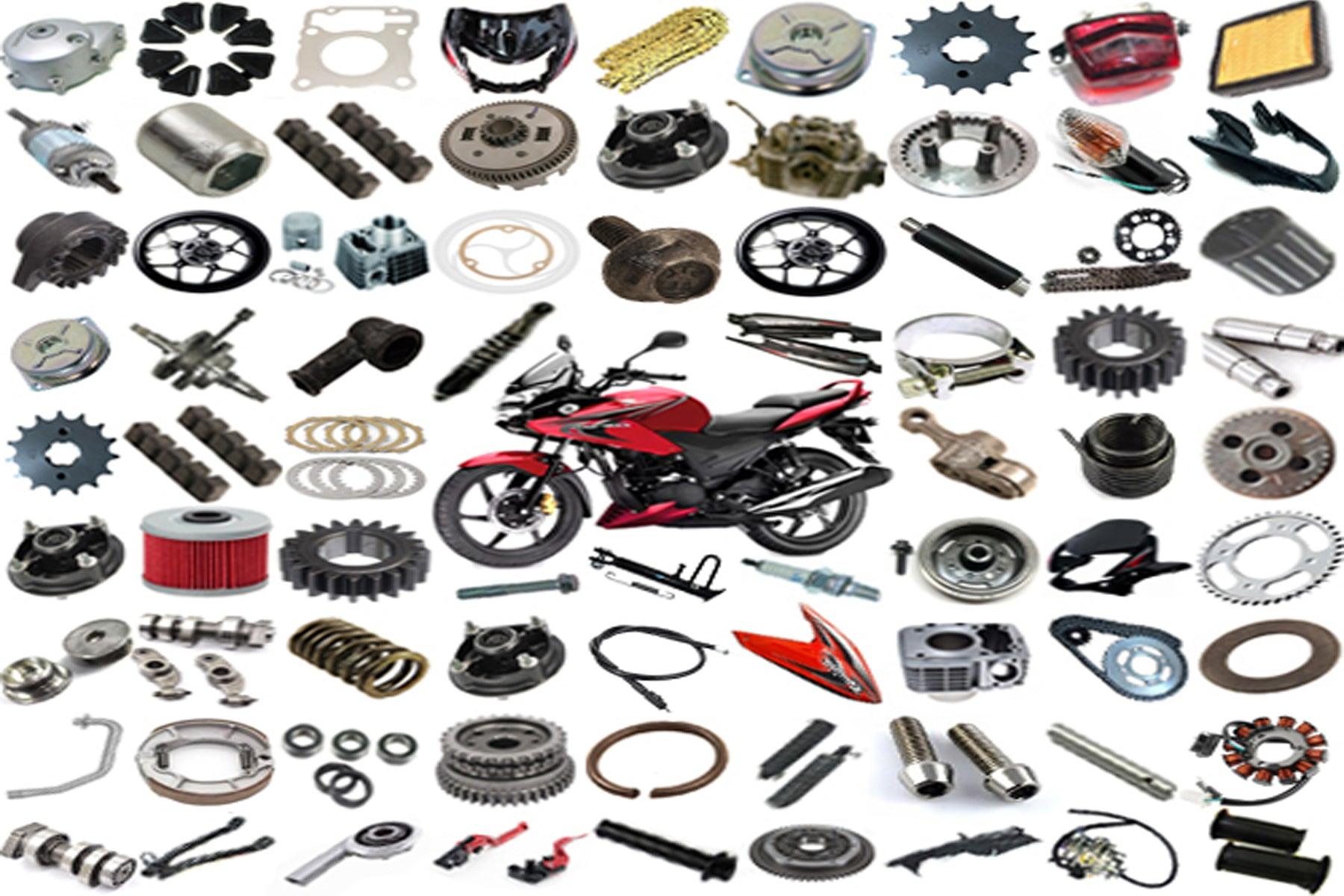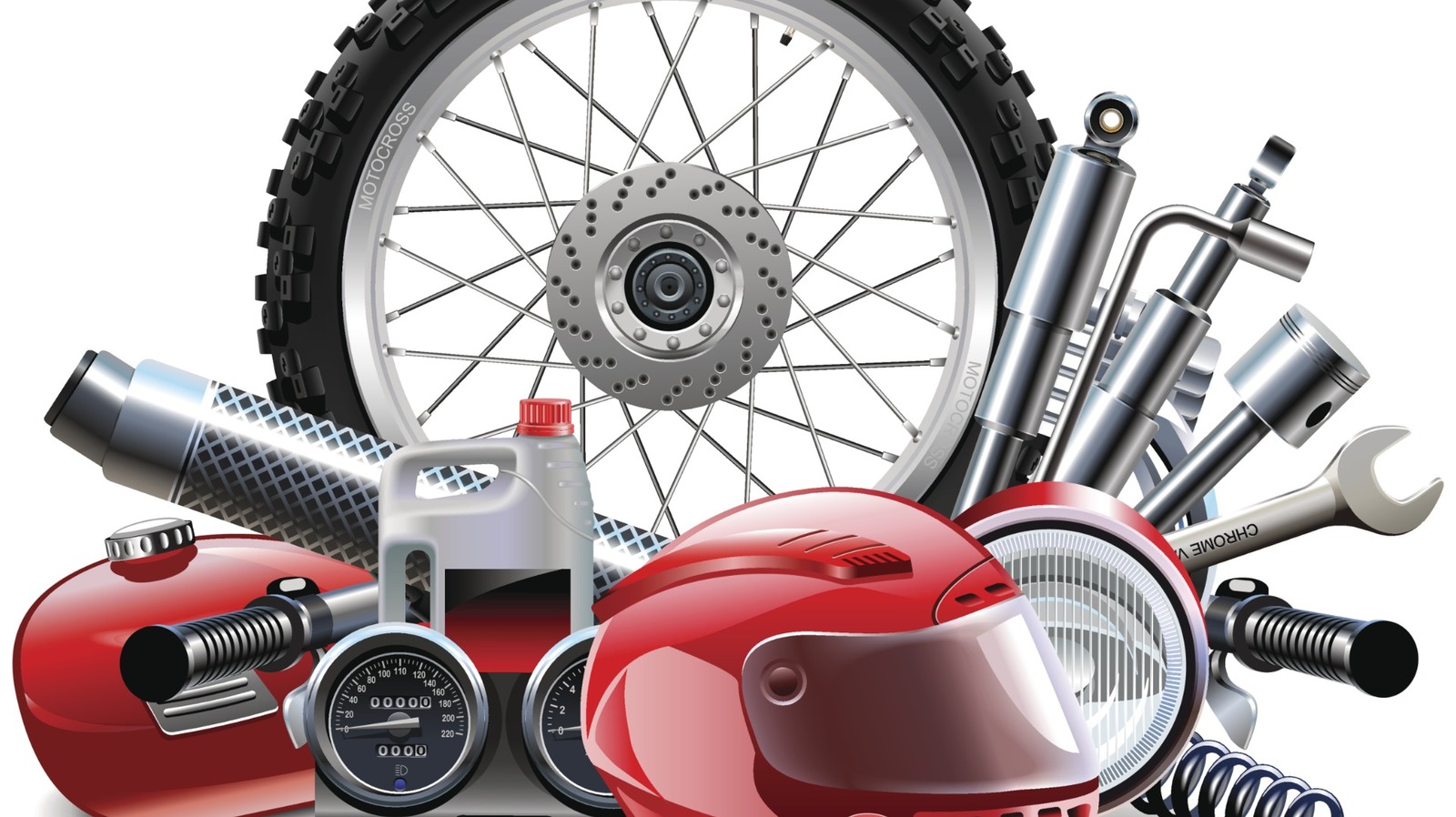What Every Rider Should Know About Choosing Quality Motorcycle Parts Auckland
What Every Rider Should Know About Choosing Quality Motorcycle Parts Auckland
Blog Article
Discover the Vital Motorcycle Parts You Need for Ideal Efficiency
Understanding the vital parts of a bike is fundamental for accomplishing peak efficiency. Each part, from the engine to the braking system, plays a vital duty in overall performance and safety. Routine maintenance can protect against unexpected failures and improve the riding experience. Nonetheless, numerous bikers forget the intricacies of these systems. Discovering exactly how they collaborate can bring about a much more efficient adventure. What crucial components should every motorcyclist focus on?
The Engine: The Heart of Your Motorcycle
The engine acts as the core component of a motorcycle, driving its performance and defining its abilities. It is accountable for converting fuel into power, which powers the bike forward. Various kinds of engines are utilized, including single-cylinder, V-twin, and inline configurations, each offering distinctive qualities suited for different riding functions and styles. The engine size, generally measured in cubic centimeters (cc), considerably influences efficiency, with larger engines generally providing even more power and torque.Furthermore, the engine's layout and technology, such as fuel injection systems or air-cooling versus liquid-cooling, impact effectiveness and dependability. Upkeep is necessary for peak operation; elements like regular oil adjustments and checking stimulate plugs assurance durability. Bikers usually take into consideration an engine's responsiveness and level of smoothness, as these features enhance the total riding experience. Eventually, the engine stays an essential aspect that defines not just the motorbike's efficiency however additionally the motorcyclist's link to the equipment.
The Transmission: Changing Gears Smoothly
The transmission plays an essential duty in a motorcycle's performance, specifically in the auto mechanics of equipment shifting. Recognizing how to shift equipments smoothly can improve the overall riding experience, while normal maintenance warranties peak functionality. Correct attention to these elements can greatly influence the durability and performance of the motorcycle.

Equipment Shifting Mechanics
Smooth gear moving is vital for suitable motorbike efficiency, greatly affecting both acceleration and control. The auto mechanics of equipment shifting involve the communication in between the clutch, gear lever, and transmission system. When a motorcyclist involves the clutch, it disengages the engine from the transmission, enabling an equipment modification without harming the components. A well-timed release of the clutch, combined with accurate motion of the gear lever, promotes a smooth adjustment between gears. This procedure assures that the engine operates within its ideal power band, improving efficiency. Motorcycle Spares Christchurch. Furthermore, recognizing the gear ratios and their impact on rate and torque can help motorcyclists make educated selections during shifts, eventually adding to an extra responsive and delightful riding experience
Maintenance Tips Importance
Routine maintenance plays a vital duty in assuring that the transmission system runs efficiently, enabling smooth gear changes. Routinely examining and transforming the transmission liquid is essential, as old liquid can result in raised rubbing and wear. Furthermore, evaluating the clutch for wear guarantees peak engagement and disengagement, preventing slippage throughout gear adjustments. Lubrication of relocating parts is just as essential to lower friction and enhance efficiency. Bike proprietors ought to also monitor for leakages and unusual noises, as these can suggest underlying problems. By adhering to these upkeep ideas, motorcyclists can lengthen the life expectancy of their transmission system, ensuring that gear changes stay seamless and adding to the total performance of their motorcycle.
The Braking System: Ensuring Security on Every Ride
Braking systems are fundamental elements that directly affect a motorbike's safety and efficiency. They include various components, consisting of brake pads, rotors, calipers, and hydraulic lines, all collaborating to assure effective slowdown. The type of stopping system-- generally either disc or drum-- affects responsiveness and quiting power.Regular upkeep is necessary to support peak efficiency; worn brake pads can bring about reduced efficiency and enhanced stopping distances. Additionally, the high quality of brake liquid need to be kept an eye on, as it can soak up moisture in time, jeopardizing stopping efficiency.Riders should likewise take into consideration the value of anti-lock stopping systems (ABS), which prevent wheel lockup throughout abrupt stops, enhancing total safety. Appropriately operating brakes are not nearly quiting; they infuse confidence in the cyclist, allowing for safer navigation with numerous surfaces. Eventually, a dependable braking system is critical for taking pleasure in every experience with satisfaction.
The Suspension: Enhancing Convenience and Control
A well-functioning suspension system considerably adds to a motorbike's overall efficiency, enhancing the performance of the stopping system. The suspension plays a substantial function in absorbing shocks from unequal surfaces, ensuring a smoother experience while maintaining tire contact with the roadway. This call is necessary for both stability and control, permitting bikers to browse edges with confidence and precision.Different types of suspension systems, such as telescopic forks or mono-shocks, supply differing degrees of convenience and handling. Properly tuned suspension improves responsiveness, providing the cyclist with a much more connected feel to the motorbike. Normal upkeep checks are essential to identify the suspension components, including dampers and springs, are functioning at their finest. An efficient shock absorber not just elevates the riding experience yet likewise adds to the longevity of various other motorcycle components by minimizing deterioration. As a result, investing in high quality suspension is essential for any serious motorcycle fanatic.
The Tires: Linking You to the Roadway
Tires play a crucial function in a motorbike's efficiency, working as the main web link in between the motorcyclist and the road. Understanding the various kinds of tires offered can considerably impact taking care of and security. Furthermore, routine upkeep is important to ensure peak tire efficiency and durability.
Tire Keys In Explained
Exactly how do different tire kinds affect a motorbike's performance? Tire kinds play a vital role in determining a motorcycle's handling, grip, and security. Sport tires, developed for high efficiency, deal boosted traction and responsiveness on smooth roadways, making them optimal for competing and aggressive riding. Conversely, exploring tires focus on sturdiness and convenience, giving a smoother experience for long-distance travel. Off-road tires, characterized by their tough walk patterns, master grip on unpaved surface areas, appropriate for adventure lovers. In addition, dual-sport tires blend qualities from both off-road and on-road groups, dealing with functional riding requirements. Eventually, choosing the ideal tire kind is crucial for maximizing performance, guaranteeing security, and enhancing the overall riding experience.
Maintenance Tips Offered
While riding when driving, maintaining optimal tire problem is important for safety and security and performance. Routinely inspecting tire stress is crucial, as under-inflated tires can cause bad handling and raised wear. It is a good idea to check tread depth frequently; used tires concession hold and security. On top of that, riders should seek indicators of damages, such as lumps or cracks, which can show the requirement for substitute. Turning important link tires periodically assures even wear, improving longevity. Maintaining tires clean from debris and staying clear of extreme aesthetics can lengthen their lifespan. Preserving appropriate placement and balance adds to come to a head efficiency, minimizing anxiety on various other bike components. Sticking to these maintenance ideas will considerably enhance the total riding experience.
The Fuel System: Fueling Efficiency and Efficiency
The fuel system plays a vital duty in taking full advantage of a motorcycle's efficiency and efficiency, as it assures the optimal shipment of fuel to the engine. It consists of several important components, including the fuel storage tank, gas pump, fuel filter, and fuel injectors or carburetor. Each component should work successfully to guarantee a smooth and powerful ride.The fuel container stores gas and supplies it to the engine via the gas pump, which creates the essential stress. A fuel filter stops contaminants from getting in the engine, while the injectors or carburetor mix fuel with air for combustion.Proper maintenance of the gas system is vital; a clogged up filter or malfunctioning injector can lead to decreased efficiency and increased gas consumption. By confirming that the fuel system operates effectively, motorcyclists can take pleasure in enhanced throttle feedback, far better gas economic situation, and on the whole boosted riding experience.
The Electric System: Powering Your Ride
An effective electrical system is vital for the general performance and security of a motorbike, as it powers Learn More Here vital elements such as the ignition, illumination, and numerous digital systems. This system includes the battery, which stores power, and the alternator, in charge of creating power while the engine runs. The circuitry harness links these components, ensuring dependable power distribution.Additionally, merges protect the system from overloads, while relays aid manage high-current devices with low-power signals. A properly maintained electric system enhances efficiency by making certain smooth beginnings and regular operation of signals and lights, crucial for rider presence and safety.Regular checks of the battery's fee and connections are necessary for preventing electric failings. Bikers ought to also examine circuitry for wear and tear, ensuring all elements function ideally. Inevitably, a robust electric system contributes considerably to the general efficiency and integrity of the motorcycle.
Often Asked Questions
Exactly how Frequently Should I Replace My Motorcycle's Battery?
The frequency of bike battery replacement relies on usage and upkeep (Motorcycle Spares Christchurch). Generally, batteries should be changed every three to five years. Normal checks can assist determine when a substitute is needed for peak performance
What Tools Do I Required for Standard Motorbike Maintenance?
For basic motorbike upkeep, one needs essential tools such as an outlet set, wrenches, screwdrivers, pliers, tire stress gauge, and a torque wrench. These tools promote efficient upkeep and assure the motorbike runs efficiently and safely.
Exactly How Can I Improve My Motorbike's The rules of aerodynamics?
To improve bike the rules of aerodynamics, one ought to think about readjusting fairings, making use of windscreen expansions, optimizing body setting, and minimizing general weight. These alterations help minimize drag, boosting stability and gas efficiency during trips.
What Are the Indicators of a Failing Electric System?
Indications of a stopping working electrical system consist of lowering lights, problem starting, uneven instrument readings, and blown integrates. Motorcycle Parts Auckland. Unusual smells or rust around battery terminals might likewise suggest underlying problems needing prompt focus for safety and security and efficiency

Exactly how Do I Pick the Right Oil for My Motorbike?
When picking oil for a motorcycle, one need to take into consideration the maker's specs, viscosity ratings, and the kind of riding. In like this addition, artificial versus traditional oil can influence efficiency and engine security, affecting the decision significantly. The engine size, commonly measured in cubic centimeters (cc), substantially affects performance, with larger engines typically providing even more power and torque.Furthermore, the engine's style and innovation, such as fuel shot systems or air-cooling versus liquid-cooling, impact efficiency and dependability. A well-functioning suspension system greatly adds to a motorbike's general efficiency, enhancing the performance of the braking system. The fuel system plays a crucial duty in maximizing a motorbike's performance and performance, as it guarantees the optimum shipment of fuel to the engine. A gas filter avoids impurities from getting in the engine, while the injectors or carburetor mix gas with air for combustion.Proper maintenance of the gas system is critical; a clogged up filter or malfunctioning injector can lead to lowered efficiency and raised fuel intake. A well-kept electric system improves efficiency by guaranteeing smooth begins and consistent procedure of lights and signals, essential for cyclist visibility and safety.Regular checks of the battery's cost and connections are crucial for stopping electrical failures.
Report this page